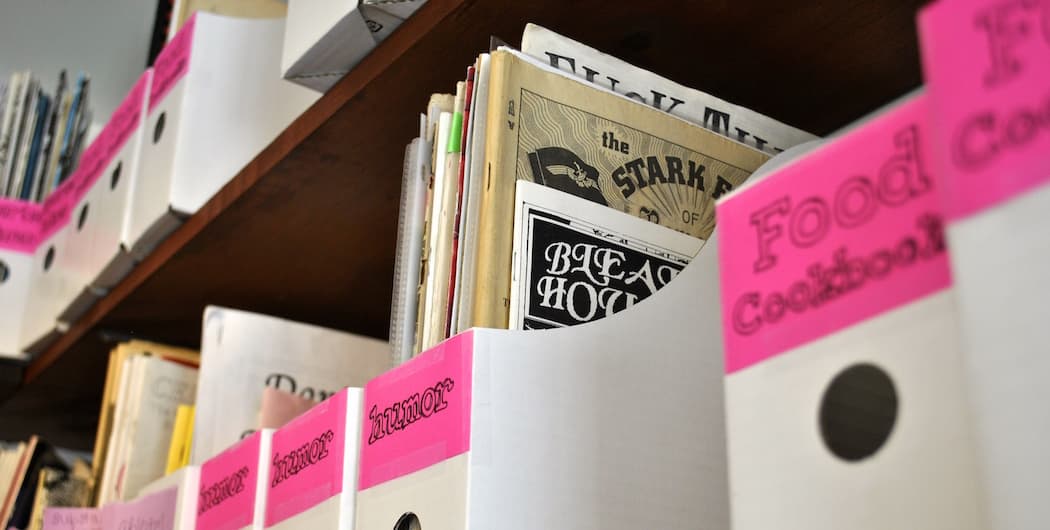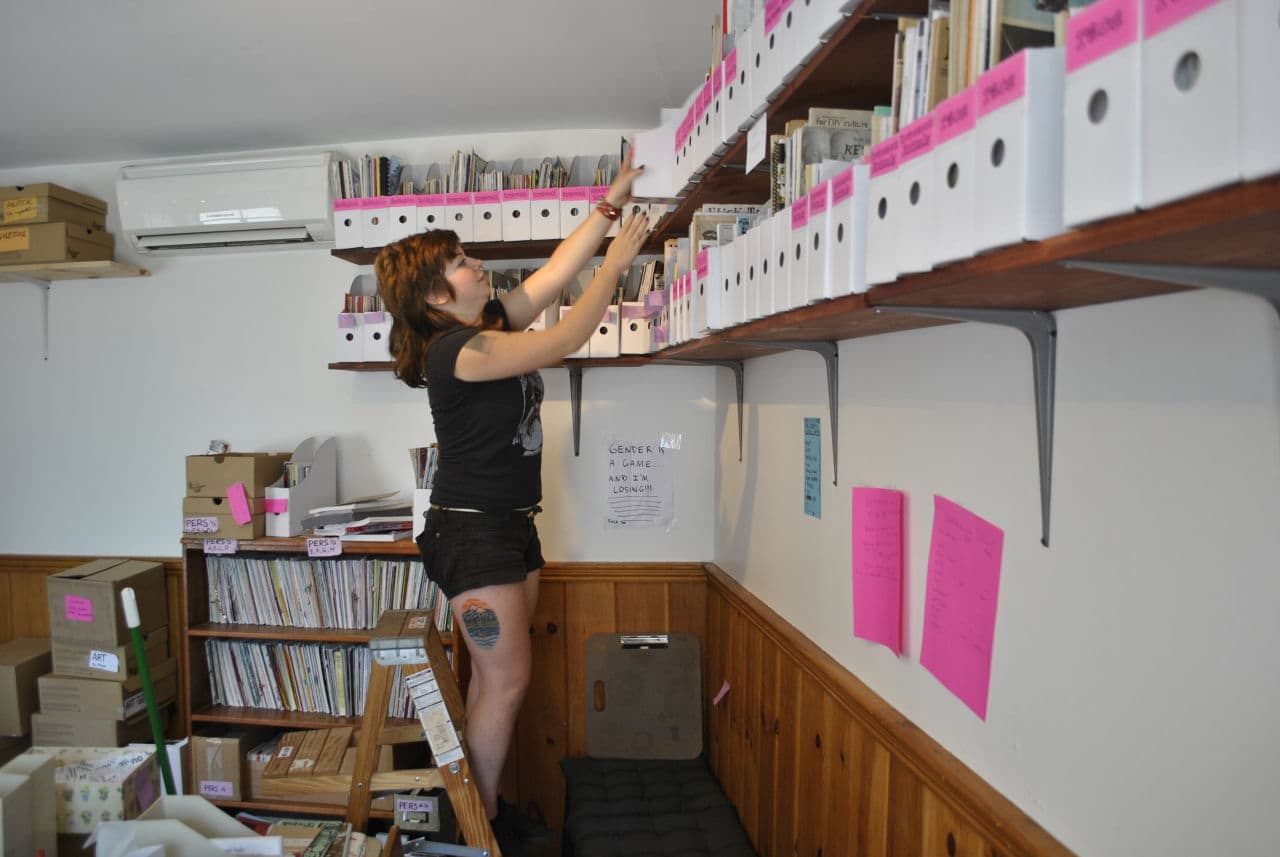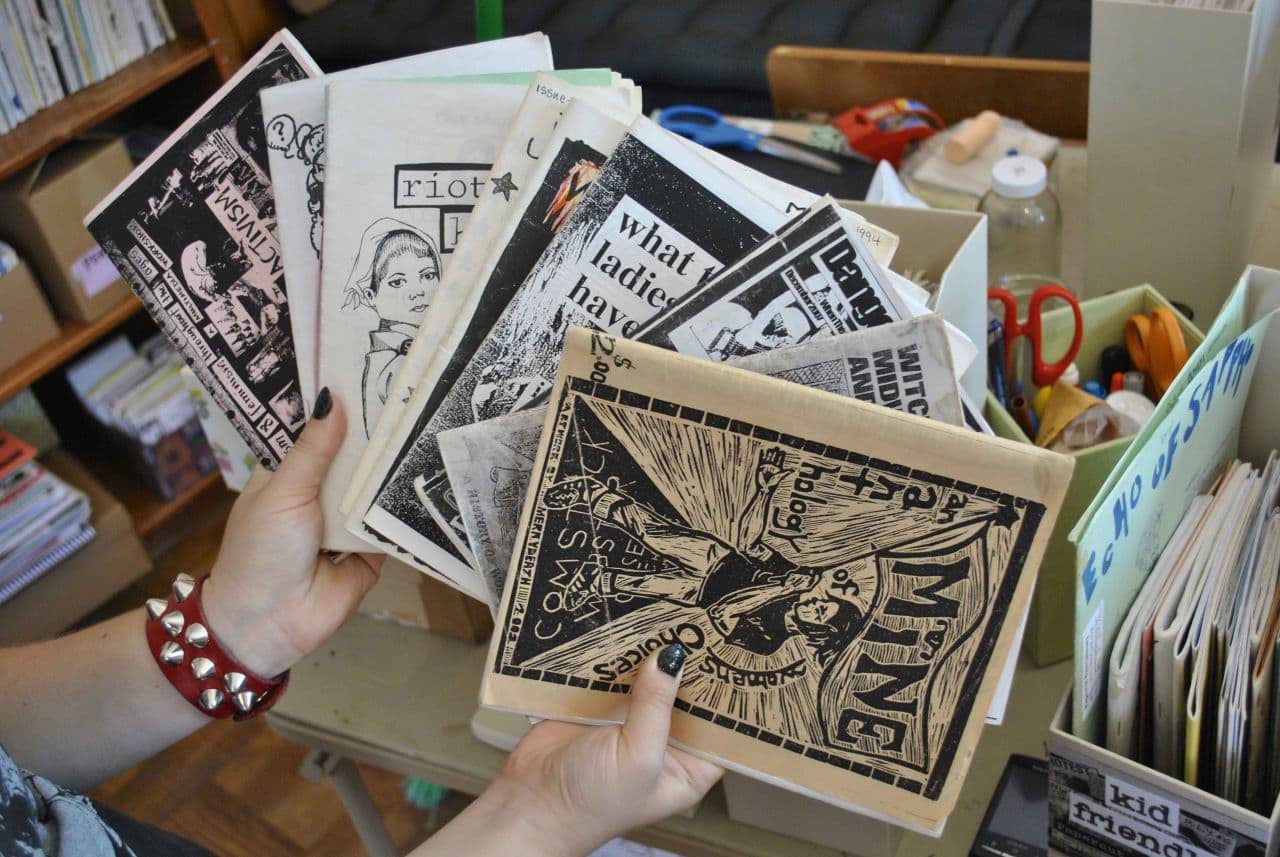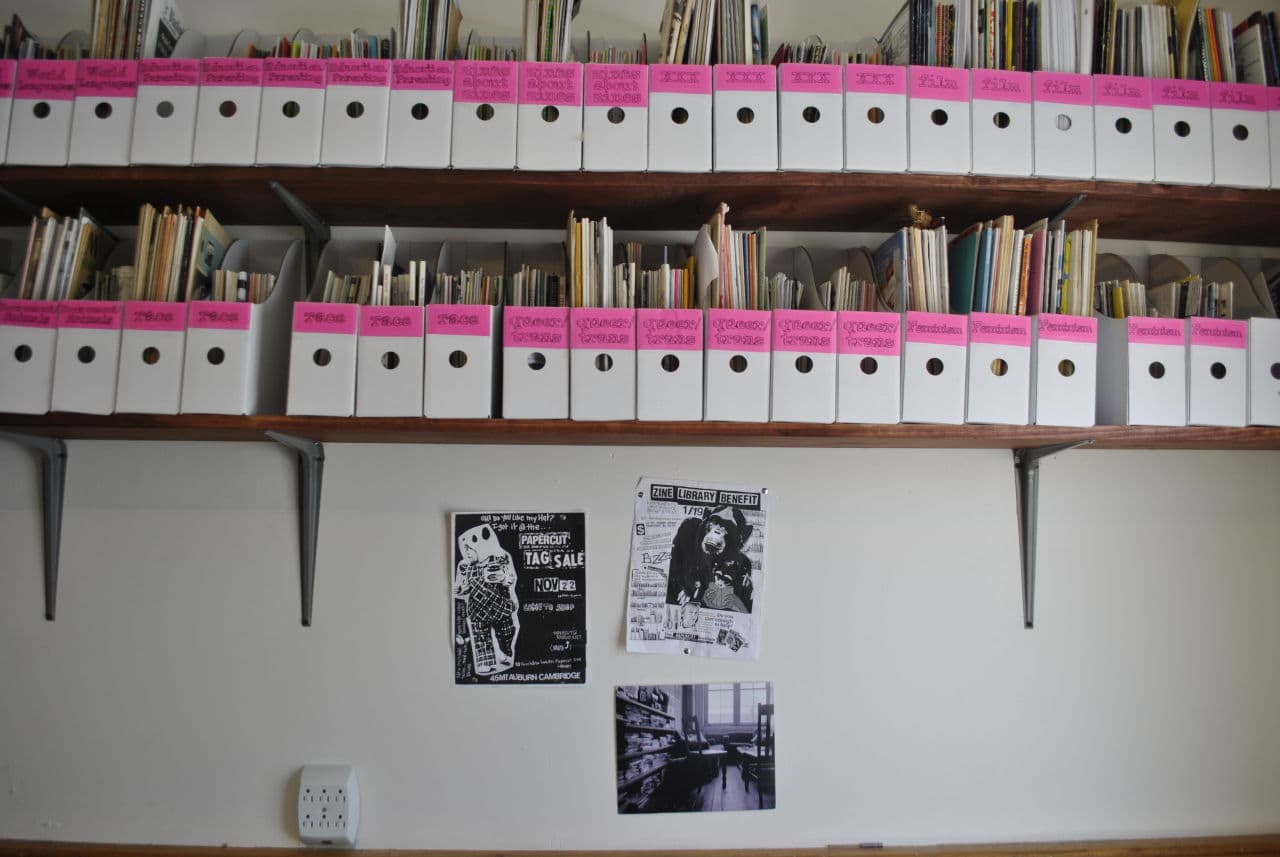Advertisement
It’s Another New Beginning For The Papercut Zine Library

Along a quiet street in Somerville (in an unmarked, slightly dilapidated building, its original use unknown), sits the Papercut Zine Library, which is preparing to open its doors for the first time in its new home.
Some background: Papercut was founded just over 10 years ago as a zine lending library collective, the first of its kind in Boston. Zines, for the uninitiated, are independently produced, self-published publications, usually made with tape, scissors and a photocopier. Like mini-magazines, they can be anything from personal to political, journalistic, instructive, erotic or absurd.
Since their inception (arguably in the 1970s), zines have been associated with subcultures, especially the punk scene. The publications literally gave voices to the voiceless, the disenfranchised, the angry. Even today — with the Internet overshadowing, well, everything — the scene that surrounds zines is as vigorous as the publications themselves.
"Zines are rad because no one can tell you how to make them, and you can say all the uncensored nonsense you want to," Sarah Ruggiero, 22, a Papercut librarian, said. "They can literally radicalize a person."

Papercut’s collection includes 15,000 zines, many of which are very old and quite rare. They’re also hardy, having survived the library’s largely nomadic existence. (Not to mention general circulation: All the zines can be taken out for free, just like a normal library.)
After jumping around in the early years, Papercut settled in a section of Lorem Ipsum Books, in Inman Square. When the bookstore closed last summer, Papercut left the space and moved to a temporary location in Allston. Staying there was legally iffy, so the address had to be kept discreet and circulation stopped while they house-hunted. Now, nearly four months after leaving Allston, the library has a new location on Ward Street in Somerville.
“This is our space and we can do whatever we want,” Ruggiero said. She's the librarian who's been spearheading the move. (Librarians are collective members who, on a volunteer basis, manage the library.) “That’s been the most exciting part.”
We spoke on a recent visit to the new space. Inside, the library is warm and sunlit, packed full with overflowing shelves. The room is arranged in a very tactile way, with zines at every level and always at arm’s length. Many have yet to be sorted and lay in top-heavy piles.

Ruggiero has been with Papercut for four years. Because of the move, as well as some internal strife within the collective, many members have left, and she is one of the only active librarians.
“I feel a personal obligation to keep the Boston DIY scene alive,” said Gen Cayford, 23, another active librarian. (Collectives, like Papercut, are often referred to as DIY ventures.) “There needs to be an alternative to going to a bar or going to Starbucks. I remember driving around with my friend last summer and going, ‘Where is somewhere cool we can hang out? Where we can just chill and, I don’t know, read?’ I want Papercut to be that space. I want Boston to have that.”
Ruggiero and Cayford both share a reverence for zines. They dug through the collection to show me a personal favorite from 1998: "Big Cheese," a zine which alleges Kurt Cobain's lactose intolerance indirectly killed him (with convincing textual and anecdotal evidence). Other points of interest included rare riot grrrl zines, zines about sex and ones they and their friends had made.

Slowly but surely the space is getting ready for the general public. The collection still needs to be fully organized, signage needs to be erected and floors need to be swept.
“We’re setting it up so it will be cozy and homey,” Ruggiero said. “If someone’s having a reading they can stand over there,” she said, pointing to a corner of the room and squinting. “And people can sit there,” she said, pointing behind her to a built-in bench.
“It’s all coming together,” Cayford said.
“I just want the doors to open!” Ruggiero said, exasperated.
The hope is to open early this fall, if all goes according to plan.
Matt Mullen studies at Emerson College and is an editorial assistant at Ploughshares, the literary journal.